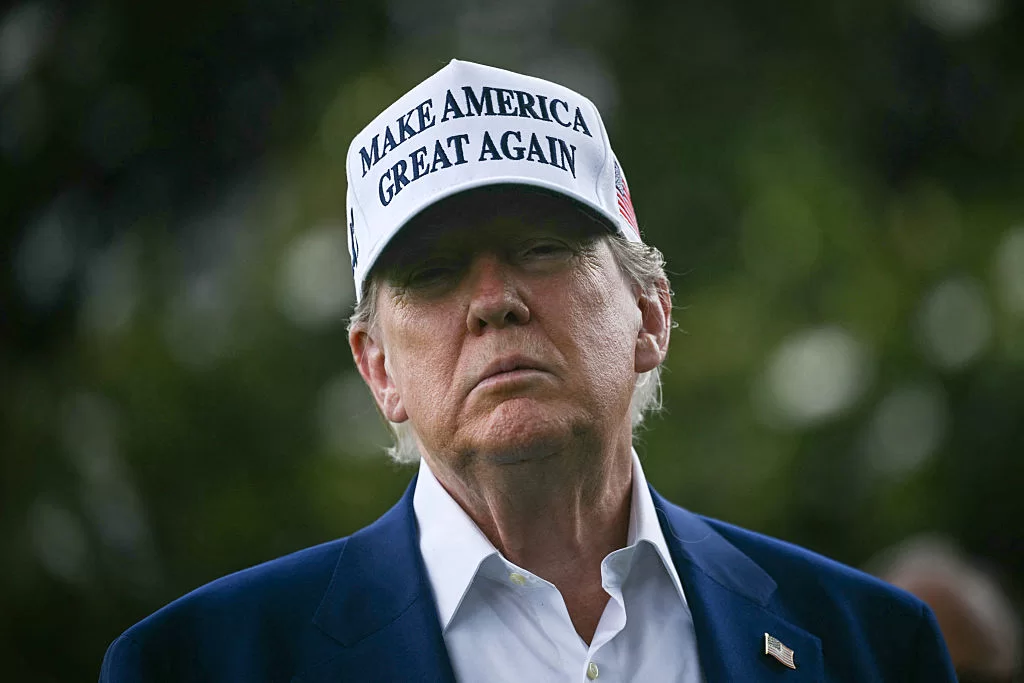- Friday, June 20, 2025
In a shift from earlier claims, President Trump credited Indian PM Modi and Pakistan’s army chief Asim Munir for ending the May 7–10 hostilities, calling them “very smart leaders” who averted a possible nuclear war without US mediation.

By: Vibhuti Pathak
In a notable shift from his previous statements, US president Donald Trump has publicly credited the leaders of India and Pakistan for ending last month’s hostilities, stepping back from his earlier repeated claims that he personally brokered the ceasefire between the two nuclear-armed nations.
Trump’s comments came after a rare luncheon meeting at the White House with Pakistan’s army chief, Field Marshal Asim Munir.
Trump’s comments came after a rare luncheon meeting at the White House with Pakistan’s army chief, Field Marshal Asim Munir.
The US president was accompanied by Secretary of State Marco Rubio and US Special Representative for the Middle East Steve Witkoff, while Munir was joined by Pakistan’s National Security Advisor Lt Gen Asim Malik, who also heads the ISI.
During the meeting, Trump discussed the recent India-Pakistan conflict as well as the escalating Iran-Israel standoff, amid speculation that Washington might seek access to Pakistani military bases should it decide to launch strikes on Tehran.
Trump said he was “honored” to meet Munir and thanked him for not escalating the conflict with India, stating, “The reason I had him here was that I want to thank him for not going into the war (with India); ending the war. And I want to thank Prime Minister Modi as well”.
Trump’s Shift: From Mediator to Appreciator
Trump’s remarks on Wednesday (18) marked a departure from his earlier stance. Over the past few weeks, he had claimed more than a dozen times that he was responsible for brokering the ceasefire between India and Pakistan.
However, after his meeting with Munir, Trump acknowledged that the leaders of both countries—Prime Minister Narendra Modi and Pakistan’s leadership—made the decision to end the conflict themselves.
Trump praised both leaders, saying, “Two very smart people decided not to keep going with that war. That could have been a nuclear war. Those are two nuclear powers, big ones, big, big nuclear powers, and they decided that (to end the conflict)”.
Operation Sindoor and the Ceasefire
The conflict began on May 7, when India launched Operation Sindoor, targeting terrorist infrastructure in Pakistan-controlled territories in response to the Pahalgam terror attack. The strikes led to four days of intense clashes, which concluded on May 10 after direct talks between the Indian and Pakistani militaries.
In a phone call with Trump, prime minister Modi clarified that the ceasefire was achieved through these direct military-to-military discussions, with no US mediation involved.
Pakistan’s Perspective and Praise for Trump
The Pakistan Army, in its statement, expressed “deep appreciation” for Trump’s “constructive and result-oriented role in facilitating a ceasefire between Pakistan and India in the recent regional crisis.”
The army chief also acknowledged Trump’s “statesmanship” and his ability to address global challenges, while Trump reciprocated by praising Pakistan’s ongoing efforts for regional peace and stability, as well as robust counter-terrorism cooperation.
Notably, Munir reportedly pitched for a Nobel Peace Prize for Trump for his role in preventing a nuclear war between India and Pakistan.
Expanding US-Pakistan Strategic Ties
Beyond security issues, Trump and Munir discussed the potential for a “mutually beneficial” trade partnership, with talks encompassing trade, economic development, mines and minerals, artificial intelligence, energy, cryptocurrency, and emerging technologies.
Trump expressed keen interest in forging long-term strategic convergence and shared interests between the US and Pakistan.
Munir also extended an invitation to Trump to visit Pakistan at a mutually convenient date, a gesture rarely extended to a US president by a Pakistani army chief who is not also the country’s president.
Regional Security: Iran-Israel Tensions
The Iran-Israel conflict was another major topic at the luncheon. Trump noted that Pakistan’s military leadership “knows Iran very well, better than most,” and both sides emphasized the importance of resolving the ongoing tensions in the Middle East.
Trump’s acknowledgment of the independent roles played by Indian and Pakistani leaders in ending the May conflict marks a significant shift in narrative, aligning more closely with official Indian accounts and signaling a nuanced approach to US involvement in South Asian security affairs.
The meeting also highlighted deepening US-Pakistan ties, with security, trade, and regional stability at the forefront of discussions.